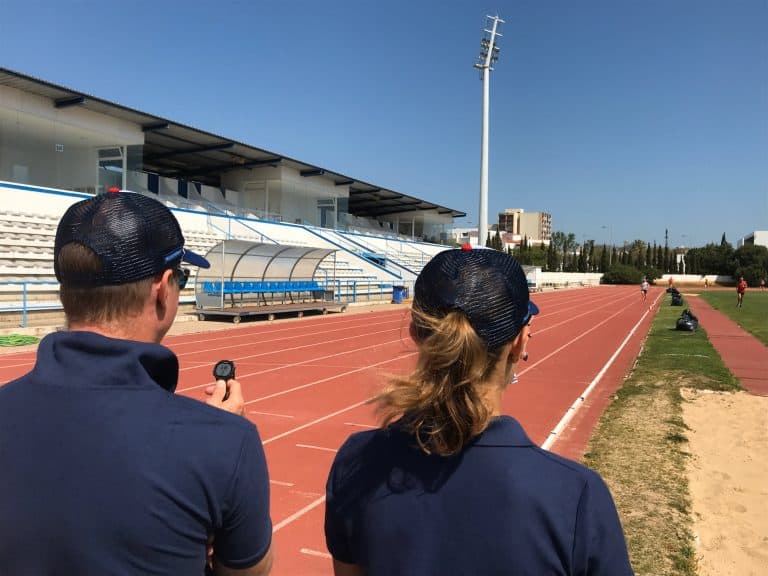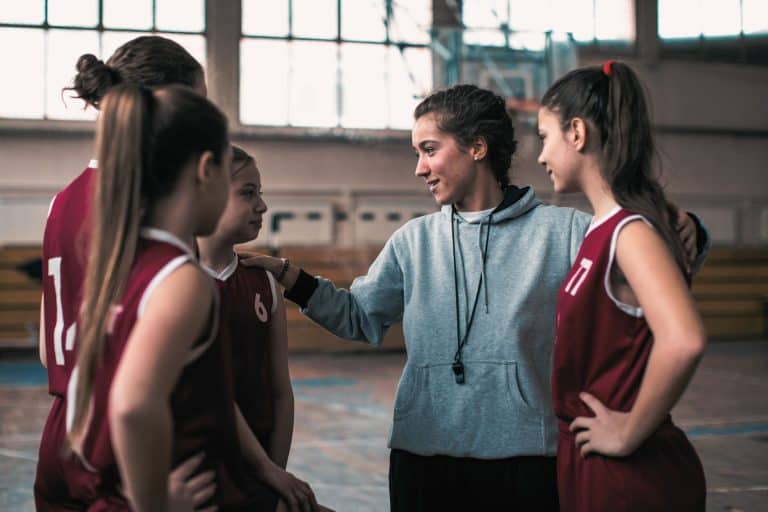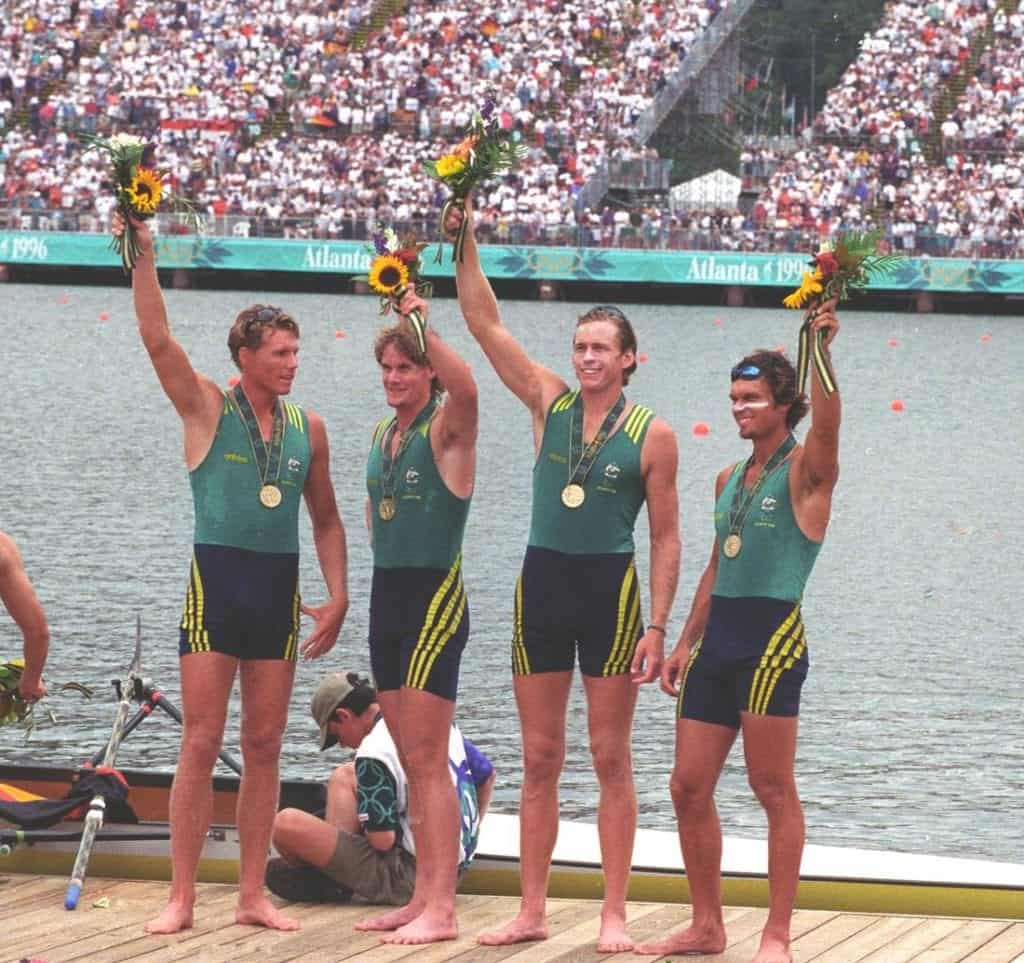Renowned researcher in physical education and youth sports, Dr. Bradford Strand of North Dakota State University, has provided instrumental research on how to keep youth athletes engaged in sport, exploring the multifaceted sporting experience, including appropriate practices, ethics, mental health, and relationships. We caught up with him recently to learn more about his recent findings, including the exploration of team dynamics and cohesion, which included the use of DISC Profiling as a contributing factor.
Sharing the ‘why’ behind his research,
“My overarching purpose has been to ensure that children and youth have positive physical education and sport experiences, so they will want to continue being active when they finish school and move into adulthood.”
Central to Dr. Strand’s work is the concept of Positive Youth Development (PYD). PYD is a framework prioritizing the holistic development of young athletes, focusing on what Dr. Strand refers to as the ‘Five Cs’: Competence, Confidence, Connection, Character, and Compassion.
This comprehensive model is implemented through a long-term athlete development (LTAD) strategy, which aligns skills, tactics, equipment, and coaching with the athlete’s age and developmental level. Unlike traditional sports models that emphasize winning, Dr. Strand’s approach prioritizes growth and learning. He notes, “With PYD, the process of learning and improving supersedes the outcome of winning.”
Over time, Dr. Strand’s research has offered insight into the mechanics of youth development through sport. Recently, he highlighted three key takeaways from his research that he believes are essential for those involved in youth sports:
- “The importance of the integration of life skills training via sport. If coaches are teaching their athletes how certain character traits look on the field, they should expand this learning to how these traits play out in a classroom, in a family, and in a community.
- The importance of fostering a relationship culture in which athletes feel safe and connected. And in which they are developing feelings of self-worth and self-esteem.
- Coaches need to provide a supportive relationship in with they, the coaches, model and reinforce a positive-growth mindset. Coaches need to teach their athletes adaptive ways of coping, the value of effort, lessons in success and failure, along with self-efficacy beliefs.”
This comprehensive approach ensures that the skills learned in sports are transferable to other areas of life, promoting overall personal development. Additionally, the sense of belonging young athletes develop is crucial for their well-being, contributing to a more cohesive and supportive team environment. Lessons learned through sport not only improve athletic performance, but also equip athletes with valuable life skills, including self-efficacy.
Dr. Strand delves into both the technical and non-technical aspects of PYD. The technical components include developing competence and confidence through age-appropriate practices, drills, and competition. These elements are vital for helping athletes build the necessary skills and confidence to succeed in their sport. He explained,
“As athletes are developing skill competence, they are also building confidence. This essential part of development comes through teaching and development of age-appropriate psychological skills that help one perform better in practice and competition.”
Dr. Strand continued,
“The non-technical aspects of the sporting environment focus on fostering connection, character, and compassion. Athletes need supportive relationships, opportunities to belong, establishing positive social norms, support for efficacy and mattering, and the integration of family, school, and community efforts.” This holistic approach ensures that athletes receive comprehensive support, not only on the field but in all areas of their lives.
In his ongoing pursuit of exploring and improving team dynamics, Dr. Strand incorporated Athlete Assessments DISC Profiles into his recent research on two teams at the collegiate level.
He shared,
“I believe that for a coach to reach each athlete on an individual basis he or she must know that athlete. DISC provides a unique opportunity for coaches and athletes to better understand one another and communicate more effectively in turn helping both coach and athlete grow personally.”
By gaining insights into individual preferences and communication styles, coaches can tailor their approaches to meet each athlete’s specific needs. This individualized attention fosters a more supportive and cohesive team environment.
Applying the sporting experience Dr. Strand added,
“Learning to understand and communicate effectively on the court, pitch, or field will then translate to a better understanding and appreciation of others, enhancing an individual’s communication and acceptance of others.”
Last spring, Dr. Strand commenced a team cohesion study with the North Dakota State University Softball Team. The athletes and coaches completed their AthleteDISC and CoachDISC Profiles at the beginning of the season, furthering their understanding of themselves and those around them. Athlete Assessments’ DISC Profiles detail each individual’s strengths, preferences for pace, and communication and relationship-building styles. Importantly, Athlete Assessments’ DISC Profiles also provide insight into environments where individuals thrive in and what causes them stress. As part of the study, coaches and athletes also participated in five team consultations with 4x Olympian, 3x Olympic Medalist, and Athlete Assessments’ Founder and Director, Bo Hanson. Through these sessions the team unpacked their individual DISC Profile results, whilst also exploring their unique Team Dynamic to gain greater awareness of each other. The coaches were a part of each meeting and discussion, creating not only an opportunity for the athletes to better understand their teammates, but also develop an open dialogue with their coaches.
As part of the study, athletes also completed a social cohesion inventory at the beginning, twice during, and at the end of the season. Interviews were held with coaches and athletes at the end of the season as well.
Reflecting on the softball team’s experience, Dr. Strand noted, “From the interviews, we learned that the softball players felt the DISC Profiles helped them better understand each other and play together.” Additionally, the coaches reported finding the profiles invaluable for tuning into the specific needs of each athlete, enhancing their ability to provide personalized support.
Similarly, Dr. Strand has been conducting a study with the North Dakota State University Women’s Basketball Team, which has shown promising results. One coach noted that this is “the most cohesive team she has ever coached,” attributing this unity to the understanding fostered through DISC Profiles. The head coach also uses the individual player profiles during one-on-one sessions with athletes, helping to build stronger coach-athlete relationships and improve overall team cohesion. We caught up with Assistant Coach, Michaela Everett, to hear more about the team’s experience over the season and the culture they have created.
Dr. Strand recently published a book titled Optimal Sports Performance: Practice Smarter, Think Faster, Play Better. In Optimal Sports Performance, Dr. Strand lays out a model for helping athletes of all ages understand and learn how to reach optimal performance.
Throughout the book, he uses Action Triggers to assist athletes in better understanding the challenges of their sport and has them complete Preloaded Responses which help eliminate decision paralysis in challenging situations. Identifying Preloaded Responses frees up mental bandwidth and makes your response reflexive and automatic allowing you to focus on other aspects of a game or contest.
The essence of optimal performance is having skill competence, displaying confidence, being committed to one’s performance, and finally trusting the process of practice and preparation. This book is available through Amazon or Barnes and Noble
Dr. Strand’s research emphasizes the importance of a holistic approach to youth and really, all levels of sports, one that nurtures both the technical and non-technical aspects of an athlete’s development. By focusing on the 5 Cs of Positive Youth Development, Dr. Strand’s work seeks to create positive, supportive, and enriching sports experiences for young athletes. His research not only aims to improve athletic performance but ensures that these experiences contribute to the athletes’ personal growth and long-term well-being. Through his dedication, Dr. Strand continues to impact the field of youth sports, advocating for environments where young athletes can thrive both on and off the field.
Concluding he shared, “Is it any wonder that so many children quit youth sport so quickly after they have tried it? I often question, why would one want to play or continue a sporting endeavor if they were not acquiring any of the 5 C’s or if their coach was not fostering an inclusive, support environment? I want to ensure that all sport experiences, no matter what age or grade level, are positive.”
Where to from here?
If you are interested in using Athlete Assessments DISC Profiles as part of a research initiative, please reach out to speak to us more about this! Athlete Assessments prides ourselves on our research partnerships, working collaboratively to advance the understanding of performance, team dynamics, and leadership. Our goal is to provide meaningful insights that drive results and contribute to the broader field of sport development. Let’s explore how we can support your research objectives together. Contact us!
Recommended Articles
Dr. Ed Garrett, PsyD, BCMHC, CH-C, Director of Sport and Performance Psychology at California Baptist University, on his approach to developing people and teams in performance environments using DISC Profiling.
Dr. Megan Buning, CMPC, on Empowering Coaches, Game Officials, and Teams with Mental Performance Skills and the Practical Application of DISC Profiling.
Head Coach, Abbey Sutherland, and Mental Performance Consultant and Sport Psychologist, Cody Newton, on the importance of collaborative relationships and role modelling a foundation of trust for your team’s development.
Brian Alexander, Athlete Mental Skills Coach, on the use of DISC Profiling within his holistic approach to athlete development.








